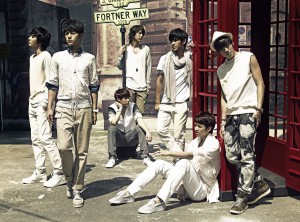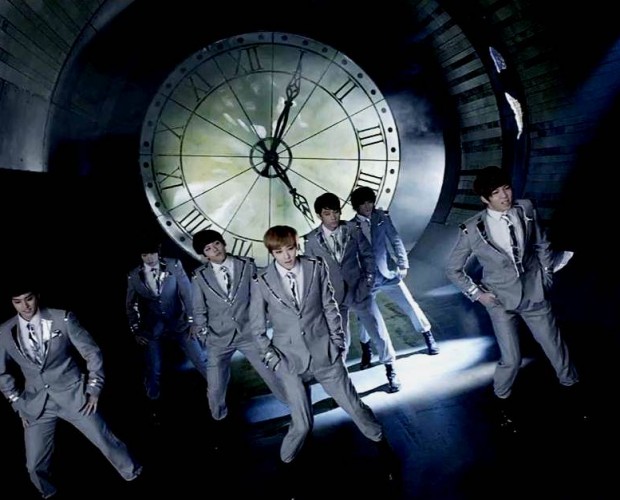Release: March 28, 2011
Distributor: Loen Entertainment
Rating: 4/5
At this point, I can reasonably divide Yangpa‘s career into two distinct eras. The “old” Yangpa would cover the time from her 1996 debut to the 2001 Perfume, and the “new” would pick up after her 2007 comeback The Windows of My Soul.
Perhaps it was the effect of the six-year hiatus dividing those two eras, but Yangpa’s music changed. The Windows of My Soul
was bolder and richer in every way, as opposed to her old outings. Not
only did the sound diversify and evolve, but Yangpa herself was more
mature, more able to explore the nooks and crannies of the human mind.
And the last time we saw her on stage, in 2009, promoting Ghost
as part of a film soundtrack, she had become even more incisive and
emotive than she was in the early years. So, it shouldn’t really come
as a surprise that she used the second hiatus to improve on her formula
again.
On one hand, Elegy Nouveau, the first EP that Yangpa has ever released, is an extension of the changes we began to see in The Windows of My Soul. The first album had hints of jazz and swing sprinkled throughout; this one is jazzier. Windows aimed for a certain elegance in its theme and sound; Elegy handily takes care of it in both. But on the other hand, this EP strays from that route a little, as well. While The Windows of My Soul
completely eschewed synthesized sound in favor of a very analog,
unplugged feel (in pretty sharp contrast to the keyboard-heavy,
90s-style R&B ballads found right up until Perfume), Elegy Nouveau
tastefully incorporates a small electronic palette. Still, for the most
part, the EP tends to share more characteristics with the immediately
previous album.
Title track 아파 아이야 (It Hurts), a tempered pop ballad, is a
good example. I say “tempered,” because even though it’s a sad, dramatic
piece with big scale that could pass for the medium-tempo genre if it
tried, it’s not totally invested in the whole intense sadness deal. The
strings craft this flowing chorus, which actually has one of the more
unique-sounding melodies of the year so far, and it sounds
heartbreaking. But it’s more suppressed sadness than explicit emotion
(part of it probably has to do with the way the pitch falls rather than
climbs in the chorus). The song has a climax, but because the melody is
so innately restrained, it’s not quite explosive.
The effect is intentional: Yangpa is careful to hold her voice back
for much of the song, save for a couple special spots. The tone of the
chorus is further counteracted upon by the contrasting tone of the
verses; it’s similar to the effect that Davichi‘s 8282 used, except It Hurts does it a little more naturally.
This exercise in moderation is what makes It Hurts a spiritual successor to The Windows of My Soul, and especially to tracks like La Vie En Rose.
In both, a notion of elegance is achieved through suppressing emotional
extremes. It works, but in doing this, Yangpa sacrifices the ability to
affect her audience with the intensity of emotion, which could be a
death sentence for a ballad artist. What good would elegance be if the
listener doesn’t care? Instead, she chooses to reach out with the depth
of emotion: the bottled-up, brooding pain and longing are meant to
resonate more powerfully than any wailing or screaming would. Little
touches, like the nearly unnoticeable piano punctuating the chorus, add
to that type of subtle influence and help to make it work.
The rest of the album doesn’t share this ordeal on emotion, but boy,
are they keen on keeping the elegance thing going. Yangpa took great
care to feature a variety of styles, and on the whole, there’s a good
selection of well-arranged, thoughtful tracks here.
Album opener 너라면 좋겠어 (I Wish It Were You) features an exhilarating medium-tempo soundtrack to Yangpa’s jubilant performance; it’s similar to K.Will‘s recent, disappointing Heart Beats, but with much more energy and vibrancy going for it. 그 때 그 사람 (The Man Back Then)
is, quite literally, lacking of a real genre. What it does offer,
instead, is an embarrassment of riches in sounds: the track is built
upon elements from Latin and swing jazz, through bombastic brass
accompaniment and more subtle strings and use of effecter, and also adds
a rock section in the bridge. It’s a novel experiment that rewards with
a showstopping, unique track (although the rock section almost feels as
if it’s placed there just for the sake of variety), and Yangpa does an
admirable job of tailoring her performance to the shifts in style.
Bon Appetit continues the theme with big-band jazz: think of it as a streamlined, less flashy Marry Me. It ends up being a sweet little piece, as Yangpa is aided by BEAST‘s Doojoon
in an attractive performance. (Incidentally, there’s a real chance that
this kind of brass-heavy jazz becomes Yangpa’s trademark style: her
vocals are a good fit, and no other mainstream artist really pursues
it.)
The only track that doesn’t really measure up is 친구야 (Dear Friend),
as it falls back on a stale ballad formula and displays a few problems
in pacing. It does, however, give Yangpa a chance to show off the more
powerful side of her vocals, lest we forget from not having heard it in
about four years. The prowess is noted.
Yangpa is building a new brand for herself–she did it as a teenager
once, but it seems that she wants to reinvent her wheel after a decade
of exploring that musical world. In that regard, Elegy Nouveau
is more than successful for a (presumably) transition EP. The indulgence
in the elegant, refined style that is so pervasive in the album does
run a future risk, however: losing emotional foothold with listeners.
It’s a non-factor in Elegy Nouveau, but Rihanna‘s intentionally detached style was a non-factor in Good Girls Gone Bad before it dug her into a hole in Rated R.
So long as Yangpa avoids developing her trademark into a mannerism,
she will be okay. The thirty-two-year-old’s career is starting in a new
direction, and Elegy Nouveau (anyone else wonder why it’s not spelled Elegie Nouveau for consistency, by the way?) is just that: a new elegy, bidding farewell to the Yangpa of old.
Tracklist (recommended tracks listed in bold)
1. 너라면 좋겠어 (I Wish It Were You)
2. 아파 아이야 (It Hurts)
3. 그 때 그 사람 (The Man Back Then)
4. Bon Appetit – Featuring Doojoon of Beast
5. 친구야 (Dear Friend)
6. 너라면 좋겠어 (I Wish It Were You)- Instrumental
7. 아파 아이야 (It Hurts)- Instrumental
8. 그 때 그 사람 (The Man Back Then)- Instrumental
9. Bon Appetit – Instrumental
10. 친구야 (Dear Friend)- Instrumental
Saturday, June 30, 2012
Sunday, June 24, 2012
Yangpa - Bon Apetit
Bon Apetit [Yangpa feat. Doojoon]
*Bolded parts = DoojoonHangul
살살 녹여볼까 설레는 이마음
온돌 좀 높여볼까 좀 더 진하게
한 입이면 충분 사르르 녹아버릴껄
한 입 먹어볼까 달콤한 니 고백
두 입 베어물면 아뜩한 현기증
절로 나오는 말 나 그댈 사랑해
어떤 마술을 부리나요 이렇게 홀려버린 걸
모든게 꿈결같아 다 꿈이라면 절대 깨지않기를
둘이서 베이비 둘만의 얘기
쵸콜렛 입술사일 흐르는 멜로디
둘이서 Maybe 그댈 마시고 내쉬면 세상이 달라보여
You’re my crazy drug
니가 밥 먹으면 내 배가 부른걸
미소만 지어도 내 입은 귀에 걸려
우울해할때면 난 죽고만 싶어
빙글뱅글 또 스르르르 이렇게 취해버린걸
어쩜 나 병일까요 오! 병이라면 제발 낫지 않기를
둘이서 베이비 둘만의 얘기
쵸콜렛 입술사일 흐르는 멜로디
둘이서 Maybe 그댈 마시고 내쉬면 세상이 달라보여
You’re my crazy drug
숨길수 없어 오! 멈출수도 없어
그래 지금 바로 지금 내 눈앞에 웃고 있는 너
I love you honey 좋아해 많이
먹고 또 마셔봐도 늘고픈 멜로디
둘이서 Maybe 그댈 마쉬고 내쉬면 세상이 달라보여
You’re my crazy drug
English Trans
Should I gently melt this excited heart
Should I raise the temperature a little more
Just one bite is enough it slowly melts
Should I take one bite of your sweet confession
Should I take two bites of this sweet dizziness
The words that come out naturally, I love you
What kind of magic are you doing for me to be taken like this
Everything is like a dream, if it is a dream I wish not to wake from it
You’re my crazy drug
The two of us baby our story
The melody that flows between chocolate lips
The two of us maybe when I breathe you in and out the world looks different
You’re my crazy drug
When you eat I feel full
Even if you only smile my lips hang on my ears
When you’re depressed I just want to die
Round and round and slowly I get drunk
Could I be sick oh! If I’m sick I hope I don’t get better
The two of us baby our story
The melody that flows between chocolate lips
The two of us maybe when I breathe you in and out the world looks different
You’re my crazy drug
I can’t hide it oh! I can’t stop it
Yes right now, you who is standing in front of me smiling
I love you honey I like you a lot
The melody I want to listen to no matter how much I consume it
The two of us maybe when I breathe you in and out the world looks different
You’re my crazy drug
Saturday, June 23, 2012
Gackt Tweets on Dokdo Grabs Attention
Ayumi and Gackt have been swept up in love rumors, and in the midst of the newfound attention, Gackt’s opinion on Dokdo has been dug up again.

On June 22, Japanese media outlets reported that Ayumi, or Iconiq in Japan, was dating the visual rock singer Gackt.
When the news hit Korea, many netizens became interested in Gackt himself. It has been revealed that he boasts close ties with Korea, as he was once wed to a Korean.
A previous statement he made on Twitter especially drew much interest. On March 30, 2011, Gackt retweeted a tweet reading ‘Dokdo is Korean territory!’ His actions caused him to receive many threats from rightist groups in Japan.
When the news hit Korea, many netizens became interested in Gackt himself. It has been revealed that he boasts close ties with Korea, as he was once wed to a Korean.
A previous statement he made on Twitter especially drew much interest. On March 30, 2011, Gackt retweeted a tweet reading ‘Dokdo is Korean territory!’ His actions caused him to receive many threats from rightist groups in Japan.

He didn’t let up, however, and continued to post texts that showed his favorable views toward Korea. His relationship with Ayumi, who is a Korean resident in Japan, again proved his views.
Ayumi once said in an interview in April, “I like someone. It’s a crush. I haven’t told him.”
Friday, June 22, 2012
Ayumi and Gackt Dating?!
Former Sugar member Ayumi has been caught up in love rumors with the popular Japanese singer Gackt.
On June 22, Sponichi Annex and other Japanese media outlets reported that Ayumi, known as Iconiq in the country, is currently dating the visual rock singer Gackt.
On June 22, Sponichi Annex and other Japanese media outlets reported that Ayumi, known as Iconiq in the country, is currently dating the visual rock singer Gackt.

The relationship was first mentioned in a report by the paparazzi weekly magazine Friday. Friday released a photo of the two dating in a high-class restaurant that overlooks the Tokyo Tower, and added, ‘The two were really into their romance, and Gackt continuously held hands with Iconiq with a big smile on his face. They embraced before they left.’
Ayumi and Gackt first met through a media broadcast, and drew close through a mutual acquaintance. Recently, the two supposedly entered a serious relationship.
Reps from the agencies of Gackt and Ayumi have said carefully that the agencies have “put them in charge of their own personal lives.”
Photo credit: Friday
Thursday, June 21, 2012
Giving Rookies a Chance
 In this day in age of K-pop, you have your staple, mega-idol K-pop groups (DBSK, SNSD, Big Bang, KARA, 2NE1, U-Kiss and the like) and then you have your normal idol groups (Dal Shabet, Rainbow, Teen Top, Chaos, AA,
etc) and in between exists a great divide. It is surely no secret that
mega-idols reign supreme on music shows, on music charts and in awards
ceremonies without so much as batting a pretty eyelid, sweeping the
floor of rookies clean out of the running for any inkling of glamorous
success. Now, the superstar idols of today were of course rookies once
too, and have come a long way in securing their ranks among the most
highly celebrated groups in K-pop through plenty of blood, sweat, tears
and schedules. However, even as our favorite big shots continue
to soak in the limelight and as we continue to fund their success by
means of emptying out our wallets for repackaged albums, posters, and
keychains, you may find it well worth your time to remember the little
guys once in a while, for it is in their hands that lies the real future
of K-pop.
In this day in age of K-pop, you have your staple, mega-idol K-pop groups (DBSK, SNSD, Big Bang, KARA, 2NE1, U-Kiss and the like) and then you have your normal idol groups (Dal Shabet, Rainbow, Teen Top, Chaos, AA,
etc) and in between exists a great divide. It is surely no secret that
mega-idols reign supreme on music shows, on music charts and in awards
ceremonies without so much as batting a pretty eyelid, sweeping the
floor of rookies clean out of the running for any inkling of glamorous
success. Now, the superstar idols of today were of course rookies once
too, and have come a long way in securing their ranks among the most
highly celebrated groups in K-pop through plenty of blood, sweat, tears
and schedules. However, even as our favorite big shots continue
to soak in the limelight and as we continue to fund their success by
means of emptying out our wallets for repackaged albums, posters, and
keychains, you may find it well worth your time to remember the little
guys once in a while, for it is in their hands that lies the real future
of K-pop.I’m talking, of course, about rookies. To be completely honest, it wasn’t until this new year that I took a fancying to rookie idols. Before then, I loathed the coming of rookies, plugging up the pop scene with mediocre music and poor attempts at recreating trends already accomplished by the bigger and better idols that stood above them. It sincerely frustrated me: just think about the sheer number of rookies groups that have popped up on the scene within the past year, and consider all their feeble attempts to rise up in status in the world of idoldom.
It is almost too easy to despise rookies groups. And not simply because of their antics on the idol scene, but also because of their status as rookie. As a well-weathered fan myself, it used to seem beneath me to waste time with rookies and rookie music, especially when my favorite idols were already pumping out chart-topping autotune crack-tastic nonsense. But there comes a time in every fan’s life when all your favorite idols are not promoting, are away in Japan, or something of the like, and suddenly, you are without your music. For me, this was the moment I turned my attention to the rookie sphere, and to put it shortly, I have never been the same. There is a certain charm to watching rookies grow and excitement watching them succeed. So please, before I digress, sit back, relax, and let me argue the case of the rookies.
Top Five Reasons Why You Should Give Rookies An Honest Chance:
1. A Breath of Fresh Air
 There
is a reason you keep your K-pop playlist on shuffle during your commute
home, on the way to school, or during your routine exercise. While
we’re always going to have love for our favorite idols and their music,
there comes a point where enough is enough. Listen to the same songs
over and over again from the same artists and you’ll stop registering
the music and eventually tune out. Rookies, on the other hand, are the
perfect opportunity to recharge your K-pop senses. Depending on their
entertainment company and their grass roots concepts, rookies can come
fully equipped with unique sound and plenty of attitude.
There
is a reason you keep your K-pop playlist on shuffle during your commute
home, on the way to school, or during your routine exercise. While
we’re always going to have love for our favorite idols and their music,
there comes a point where enough is enough. Listen to the same songs
over and over again from the same artists and you’ll stop registering
the music and eventually tune out. Rookies, on the other hand, are the
perfect opportunity to recharge your K-pop senses. Depending on their
entertainment company and their grass roots concepts, rookies can come
fully equipped with unique sound and plenty of attitude.Take for example Block B‘s “NalinA.” Sadly overshadowed by a controversy involving Block B shortly after its release, “NanlinA” it is a high energy song complete with interesting choreography and a wide array of vocals to keep you hooked. If you’re bored of the usual pop-centric approach to rookie boy-group music, turn your attention here.
Another great new song from a rookie group that is turning heads is VIXX’s “Super Hero.” Rallied together as the six finalists from Mnet’s reality show Mydol, VIXX’s first official release “Super Hero” is surprisingly addictive for a song from the typical rookie pop grind.
2. Eye Candy
 New
rookie groups also mean new faces, and that is why it is the second
most important reason when it comes to loving rookies groups. Now we all
have our biases (and hell I have an eternal bias lover, as I like to
call Jun.k) but let’s be honest here: it doesn’t take much pushing to blush in front a fresh new face from across the computer screen.
New
rookie groups also mean new faces, and that is why it is the second
most important reason when it comes to loving rookies groups. Now we all
have our biases (and hell I have an eternal bias lover, as I like to
call Jun.k) but let’s be honest here: it doesn’t take much pushing to blush in front a fresh new face from across the computer screen.Idols are always going to be pretty and prim and perfect, but there is no better way to spice up your bias love life than with a pretty new rookie. This year, Hello Venus’ Lime and her cute minty locks stole my heart, all the more because she is also a rapper. NU’EST’s Baekho only had to swing a sword around to dubstep backtrack to attract my wandering eye to his debut teaser and BAM–I was sold.
3. Real Talk
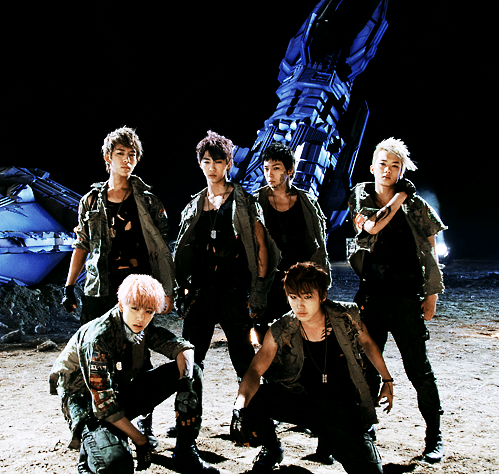 Though
some rookies may stick to the books and remain cool, calm, and
collected 100% of the time to maintain their idol image, there are some
that break barriers. Rookies often tend to be nervous and excited enough
for themselves as up and comings, and are captured in plenty of candid
moments that can reveal their honest humor or shyness, or other such
traits that may eventually simmer down in the grand scheme of their
careers as idols. These looks into rookies lives allow for a connection
to be a established–seeing them vulnerable also makes their struggle
relatable, at least to some degree, as they are still young people. It’s
one way fans connect with the idols they grow to love long before those
idols rise to stardom.
Though
some rookies may stick to the books and remain cool, calm, and
collected 100% of the time to maintain their idol image, there are some
that break barriers. Rookies often tend to be nervous and excited enough
for themselves as up and comings, and are captured in plenty of candid
moments that can reveal their honest humor or shyness, or other such
traits that may eventually simmer down in the grand scheme of their
careers as idols. These looks into rookies lives allow for a connection
to be a established–seeing them vulnerable also makes their struggle
relatable, at least to some degree, as they are still young people. It’s
one way fans connect with the idols they grow to love long before those
idols rise to stardom.Here is B.A.P. leader Yong Guk‘s pre-debut interview about his anticipation and excitement for the B.A.P. project to come to life. Normally a leader with a tough, bad boy exterior, he breaks down for a moment reflecting on this rise to fame. (Starts 22:02)
4. Reality TV
 As
long rookies are still hot on the scene, they’re going to do a lot of
self promotion. This usually involves the group getting all the members
together to feature in reality program that stars the rookies
themselves. These shows provide an inside look into the group’s
beginnings and its dynamic. Members are often forced to complete
outrageous missions or go about on team-building activities that allows
fan a look into their real, interactive personalities off stage. As seen
above, B.A.P. had Ta-Dah! It’s B.A.P. to document their pre-debut story.
As
long rookies are still hot on the scene, they’re going to do a lot of
self promotion. This usually involves the group getting all the members
together to feature in reality program that stars the rookies
themselves. These shows provide an inside look into the group’s
beginnings and its dynamic. Members are often forced to complete
outrageous missions or go about on team-building activities that allows
fan a look into their real, interactive personalities off stage. As seen
above, B.A.P. had Ta-Dah! It’s B.A.P. to document their pre-debut story.The likes of B1A4, who are currently condoning cheating with their latest aegyo-ridden “Sleep Well, Goodnight,” was featured in MTV Match Up alongside Block B back in the day, and more recently was the focus of Sesame Player. These programs are often rather mindless, but are also the source of much laughter, and laughter has a funny way of making fans like us fall in love with idols. Plus, with plenty of rookies roaming around, there is plenty of reality TV to pick and choose from.
5. Raw Talent
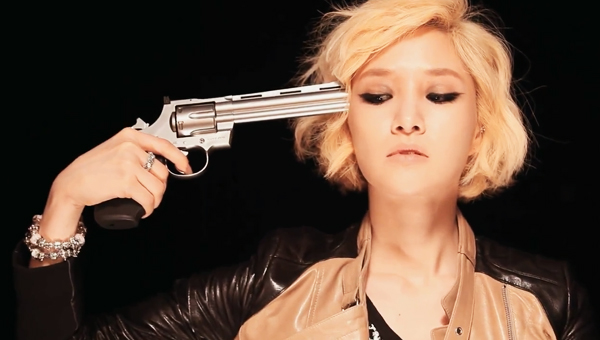 The
great rookie wave brought with it an onslaught of mediocre idols that
sing with bland voices and perform robotic choreography. However, odds
are there lies more real talent out there than we take for granted, and
our ignorance for rookies due in part to their sheer numbers also mean
that there is talent being readily overlooked. Of course, when the cream
of the K-pop crop is out promoting their music, rookies stand no chance
in out shining who we know to be the best of the best.
The
great rookie wave brought with it an onslaught of mediocre idols that
sing with bland voices and perform robotic choreography. However, odds
are there lies more real talent out there than we take for granted, and
our ignorance for rookies due in part to their sheer numbers also mean
that there is talent being readily overlooked. Of course, when the cream
of the K-pop crop is out promoting their music, rookies stand no chance
in out shining who we know to be the best of the best.But that doesn’t mean we give up on rookies altogether. If you dig deep enough, you may actually be surprised at what you find in the great rookie sphere. Consider SPICA: B2M Entertainment‘s latest female quintet. SPICA is a dazzling array of vocal talent that won’t leave you disappointed, and their mature sound and concepts set them apart from most rookies on the scene at the moment. When it comes to delivery, these girls mean business. Check out their latest haunting title track, “Painkiller.”
So if you have abstained from getting to know the many rookies that flood the K-pop scene, it may be high time you become acquainted with the talent creeping up behind you. Sure, it is daunting trying to remember who is who, and keep track of all these random group names, but in the end, a dip into the rookie sphere may prove more fruitful than you think. While it is all fine and dandy and cotton candy to love and rock out to your favorite superstar idols, don’t forget that there are rookies on the pop scene with great musical capacity and stage charisma just dying to get your passing glance. And for all we know, a handful of rookies will one day replace the ranks of others at the peak of the idoldom hierarchy; so passing up a rookie may very well mean passing up a real-time underdog story. At the end of the day, rookies only need an honest chance to prove themselves worthy of pop-scene glory. The question remaining, however, is will you give them that chance?
Creation and Maintenance of a Sound
 As more and more groups debut each year, it’s becoming more important
for groups to establish themselves in some unique way. They need to
stand out or have some characteristic that distinguishes them from the
rest of the pack. Aside from extraterrestrials traveling to Earth and
eccentric marketing tactics, an aspect that that proves significant is
the group’s sound. It’s the part of the music that tells the listener
that it’s a certain band. It should be present in all the group’s works,
even though there might be progression through different styles.
As more and more groups debut each year, it’s becoming more important
for groups to establish themselves in some unique way. They need to
stand out or have some characteristic that distinguishes them from the
rest of the pack. Aside from extraterrestrials traveling to Earth and
eccentric marketing tactics, an aspect that that proves significant is
the group’s sound. It’s the part of the music that tells the listener
that it’s a certain band. It should be present in all the group’s works,
even though there might be progression through different styles.A large part of sound has to do with the voices of the group members. It makes sense: often voices will be used in the same manner if it provides the desired impact or is well suited for a certain part. For example, SHINee‘s Jonghyun often is the one holding the long notes or doing the ad-libs. Big Bang‘s Taeyang tends to sing the chorus because his voice best brings all the other voices together. Since it’s the same set of voices used to create music in groups, it should bring familiarity to the music anyways. But that isn’t always the case, especially as some members improve to acquire a larger skill-set. Sound also has much to do with the type of music the group progresses into and how they still integrate characteristics that are true to themselves. Unfortunately, in K-pop, it’s possible to hear several of a group’s songs and still not find out what their true concept is, especially since songs tend to be doled out by an entertainment company. Along that note, I’m still not sure what f(x)‘s concept is as a group. I liked “NU ABO” and some of their songs prior to that, but then “Danger” came out, changing their sound quite a bit. It was slightly off-putting to see such a huge change, but it seemed to work out for the better as “Danger” claimed multiple triple crowns on music shows.
Aside from establishing that sound, it’s important to keep changing it while keeping it–a confusing concept. A group needs to keep progressing and developing their sound, but keep it the same just enough to retain their identity. They have to be careful to not continue with the same sound, even if it was successful the first time around. Although it seems as if using a very similar sound the next round of promotions should not be a detriment, especially if the sound was well-received the first time around, it really should be avoided due to how the K-pop system works. Listeners are always looking for something new and development of groups as they progress their sound and adapt to the changing trends. Releasing similar content may work with groups that have strong fanbases, but for the rest, it’s merely a bore, even if it’s done well.
Three groups that I find to have found themselves in an unfortunate rut, sound-wise, are Infinite, 2AM, and Super Junior. While there most likely are other groups, these are my picks from the groups that I enjoy listening to.
First up is Infinite. This group made a strong debut in 2010 with “Come Back Again.” Though the majority of the vocals were from leader Sung-kyu, it was a unique, guitar-based entrance into K-pop that should have gotten more notice than it did. The next landmark in their music journey came from “Before the Dawn (BTD)” in early 2011, though it was more for their perfect execution of a physically demanding dance move than the strong music. Finally came “Be Mine” in mid-2011. A solid song, it became Infinite’s first win. Up to this point, Infinite had a steady progression of sounds. Within all their (title) songs, you could look forward to a hard edge mixed with dramatic electronic touches. Their sound was growing distinct. But then “The Chaser” came out. Don’t get me wrong: I like this song. But what I don’t like is how similar it is to “Be Mine.” The background music is lighter than “Be Mine,” but is still along the same vein as the previous, sounding like an ’80s rehash of the song. Even the subject matter is similar. Had the song been in Over the Top, it would have fit well as a supporting song. The rest of the new mini-album, Infinitize, has the same issue. It’s been heard before, making it snooze for anyone trying to find something new and exciting from the group, which has great potential.
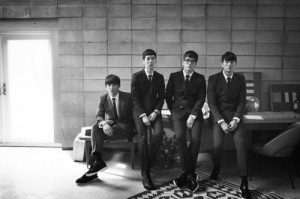 2AM:
Ballad group. The concept is thrilling because of the focus on music
and vocal ability. However, I think it does the group a disservice as it
limits what they can truly do. 2AM’s first win on a music show came
with “Can’t Let You Go Even If I Die.” The song had an impact and truly demonstrated that each member had true vocal ability. But then along came “I Was Wrong.”
Lo and behold, there was a dance routine, faster tempo, and change in
style while the slight melancholy overtones were still around, something
to be expected with progression. But apparently some fans decided it
didn’t fit the group; I thought they did just fine with the puppet
movement. Thus, when they came back later, it was without any routine
and with another strong ballad. But it was along the same lines of
“Can’t Let You Go Even If I Die.” “I Wonder If You Hurt Like Me”
is a spin on their previous hit: soulful, captivating, but
oh-so-boring. While they are a ballad group, 2AM should be able to move
past their mastery of sadness and pain and sing about brighter days. It
would be nice to see those vocals turn joyful and upbeat.
2AM:
Ballad group. The concept is thrilling because of the focus on music
and vocal ability. However, I think it does the group a disservice as it
limits what they can truly do. 2AM’s first win on a music show came
with “Can’t Let You Go Even If I Die.” The song had an impact and truly demonstrated that each member had true vocal ability. But then along came “I Was Wrong.”
Lo and behold, there was a dance routine, faster tempo, and change in
style while the slight melancholy overtones were still around, something
to be expected with progression. But apparently some fans decided it
didn’t fit the group; I thought they did just fine with the puppet
movement. Thus, when they came back later, it was without any routine
and with another strong ballad. But it was along the same lines of
“Can’t Let You Go Even If I Die.” “I Wonder If You Hurt Like Me”
is a spin on their previous hit: soulful, captivating, but
oh-so-boring. While they are a ballad group, 2AM should be able to move
past their mastery of sadness and pain and sing about brighter days. It
would be nice to see those vocals turn joyful and upbeat.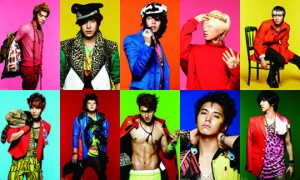 Perhaps the kings of keeping the same sound are Super Junior. After their smash hit “Sorry, Sorry,” SM Entertainment and the founder of SMP style–SM Performance–Yoo Young-jin kept with the same vein of music to create “Bonamana.”
I didn’t mind that similarity. “Bonamana” was “Sorry, Sorry”‘s darker
and more sensual brother that worked just fine. But round three, “Mr. Simple,”
pushed the extent of the use of the concept too much. It felt like a
mash-up of “Sorry, Sorry” and “Bonamana,” a lame effort to put out an
album just for the sake of putting another one out. The sound was
chaotic, electronic, and used far too many sound effects. “Sorry, Sorry”
was simple, “Bonamana” was darker, and “Mr. Simple” was just harsh to
the ears, but the biggest downfall for Super Junior is that they all
sounded too similar to be three different full-length albums.
The three in combination made Super Junior’s sound become synonymous
with copious amounts of processing and little talent when in actuality,
the group has several talented members. As the group is coming out with
their sixth album this year, it would be to their benefit to ditch the
full force of SMP and instead focus on their vocal abilities, creating
real music that hasn’t been hacked into pieces by editing software. They
could go back to “Sorry, Sorry” and instead progress from that.
Perhaps the kings of keeping the same sound are Super Junior. After their smash hit “Sorry, Sorry,” SM Entertainment and the founder of SMP style–SM Performance–Yoo Young-jin kept with the same vein of music to create “Bonamana.”
I didn’t mind that similarity. “Bonamana” was “Sorry, Sorry”‘s darker
and more sensual brother that worked just fine. But round three, “Mr. Simple,”
pushed the extent of the use of the concept too much. It felt like a
mash-up of “Sorry, Sorry” and “Bonamana,” a lame effort to put out an
album just for the sake of putting another one out. The sound was
chaotic, electronic, and used far too many sound effects. “Sorry, Sorry”
was simple, “Bonamana” was darker, and “Mr. Simple” was just harsh to
the ears, but the biggest downfall for Super Junior is that they all
sounded too similar to be three different full-length albums.
The three in combination made Super Junior’s sound become synonymous
with copious amounts of processing and little talent when in actuality,
the group has several talented members. As the group is coming out with
their sixth album this year, it would be to their benefit to ditch the
full force of SMP and instead focus on their vocal abilities, creating
real music that hasn’t been hacked into pieces by editing software. They
could go back to “Sorry, Sorry” and instead progress from that.But enough of the unfortunate. While those are just of the groups that could do more exploration with their capabilities and likes, there are groups that have been fairly successful in creation of a sound and development of it to suit their selves. My picks are MBLAQ, B1A4, and the Brown Eyed Girls, though I’m sure you could pick out others.
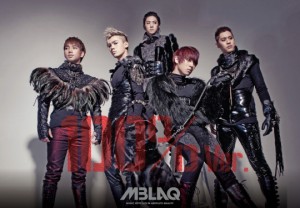 I’ve
always seen MBLAQ as an underdog. They’re successful, but not as
successful as they have the potential to be. From their debut single, “Oh Yeah,” up until now, with “It’s War,”
MBLAQ has this incredibly chic and polished sound that transitions well
to different styles. Their music has been different from the others,
from their returns to Spanish influences to the large orchestral impacts
that seam well to make dramatic music. Another aspect that factors in
more with MBLAQ than with other groups is their dance performance. Even
though the discussion is about sound, MBLAQ’s dance performances do a
splendid job of staying in your mind as something distinctly MBLAQ.
There’s the guitar-playing from “Mona Lisa”
and the upper body rolls from “It’s War.” When you hear that part of
the song, you see those moves clearly, which is most certainly not the
case with most songs from even the most popular artists. As a result,
MBLAQ’s music becomes even more defined. That refinement in MBLAQ’s
music brings it to a higher quality that can’t be replicated by other
groups. And with every new release, they bring something new or revisit
something old, but with a twist, which is how groups should progress.
I’ve
always seen MBLAQ as an underdog. They’re successful, but not as
successful as they have the potential to be. From their debut single, “Oh Yeah,” up until now, with “It’s War,”
MBLAQ has this incredibly chic and polished sound that transitions well
to different styles. Their music has been different from the others,
from their returns to Spanish influences to the large orchestral impacts
that seam well to make dramatic music. Another aspect that factors in
more with MBLAQ than with other groups is their dance performance. Even
though the discussion is about sound, MBLAQ’s dance performances do a
splendid job of staying in your mind as something distinctly MBLAQ.
There’s the guitar-playing from “Mona Lisa”
and the upper body rolls from “It’s War.” When you hear that part of
the song, you see those moves clearly, which is most certainly not the
case with most songs from even the most popular artists. As a result,
MBLAQ’s music becomes even more defined. That refinement in MBLAQ’s
music brings it to a higher quality that can’t be replicated by other
groups. And with every new release, they bring something new or revisit
something old, but with a twist, which is how groups should progress. Although
B1A4 is still technically a rookie group, they have done fairly well in
projecting their image through their title songs. “O.K.” and “Beautiful Target”
were remarkably cute and got past my aegyo-barriers in an
embarrassingly fast amount of time. Their abrupt progression to maturity
in “Baby I’m Sorry”
should have changed their sound, distorting it because cute does not
fit mature, but instead, when I heard the sound, I just immediately
accepted that it was the group. B1A4 tends to have similar beats in all
their music, which works well to accommodate their vocal abilities. They
also spread lines among their members in fairly predictable manners,
with maknae Gong-chan usually getting the least. With
all of this, it seems as if their music should have fallen into a rut.
But instead, B1A4 has done pure exploration by trying to perform music
from both ends of the spectrum. While they still have a lot of maturing
to do, they have done the super cute music and the more mature music
while keeping musical similarities through technical aspects and their
voices. But everything else has melded into something more along what
they like, especially as leader Jin-young is at the
helm of their music production. It has allowed for greater incorporation
of their styles, which most likely will remain similar through their
years as a group.
Although
B1A4 is still technically a rookie group, they have done fairly well in
projecting their image through their title songs. “O.K.” and “Beautiful Target”
were remarkably cute and got past my aegyo-barriers in an
embarrassingly fast amount of time. Their abrupt progression to maturity
in “Baby I’m Sorry”
should have changed their sound, distorting it because cute does not
fit mature, but instead, when I heard the sound, I just immediately
accepted that it was the group. B1A4 tends to have similar beats in all
their music, which works well to accommodate their vocal abilities. They
also spread lines among their members in fairly predictable manners,
with maknae Gong-chan usually getting the least. With
all of this, it seems as if their music should have fallen into a rut.
But instead, B1A4 has done pure exploration by trying to perform music
from both ends of the spectrum. While they still have a lot of maturing
to do, they have done the super cute music and the more mature music
while keeping musical similarities through technical aspects and their
voices. But everything else has melded into something more along what
they like, especially as leader Jin-young is at the
helm of their music production. It has allowed for greater incorporation
of their styles, which most likely will remain similar through their
years as a group.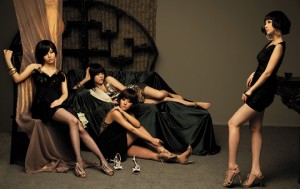 My
last pick is my one favorite girl group, the Brown Eyed Girls. Four ladies
with sensational voices that are truly capable of a wide range of
emotions and styles. Their popular dance song “Abracadabra” showed that these girls could be just as sexy as those much younger than they while still providing strong vocals. “Sixth Sense” and their entire album, Sixth Sense, only compounded on their strong image, but added in a rebellious touch. “Cleansing Cream”
continued with that matured sound, adding a greater range of emotions
and feminine delicacy. It’s fair to say that the Brown Eyed Girls have a
distinctly womanly sound that is full of maturity and power, even when
there is vulnerability. They have been able to carry that unique sound
because it is theirs: they own it, and no other group could sing the
same songs and have the same impact. It may be because their image is
full of maturity, but that image couldn’t have been formed without the
vocals to back it up. The background music that accompanies their music
tends to be full, rich, and not overly complicated, complementing their
voices instead of attempting to overwhelm them. The group’s music ends
up being a wonderful delight to look forward to.
My
last pick is my one favorite girl group, the Brown Eyed Girls. Four ladies
with sensational voices that are truly capable of a wide range of
emotions and styles. Their popular dance song “Abracadabra” showed that these girls could be just as sexy as those much younger than they while still providing strong vocals. “Sixth Sense” and their entire album, Sixth Sense, only compounded on their strong image, but added in a rebellious touch. “Cleansing Cream”
continued with that matured sound, adding a greater range of emotions
and feminine delicacy. It’s fair to say that the Brown Eyed Girls have a
distinctly womanly sound that is full of maturity and power, even when
there is vulnerability. They have been able to carry that unique sound
because it is theirs: they own it, and no other group could sing the
same songs and have the same impact. It may be because their image is
full of maturity, but that image couldn’t have been formed without the
vocals to back it up. The background music that accompanies their music
tends to be full, rich, and not overly complicated, complementing their
voices instead of attempting to overwhelm them. The group’s music ends
up being a wonderful delight to look forward to.
Friday, June 15, 2012
Rookie Actress Jung Ayul Commits Suicide
 It has been revealed that rookie actress Jung Ah Yool (25) has passed away leaving her friends and agency in shock.
It has been revealed that rookie actress Jung Ah Yool (25) has passed away leaving her friends and agency in shock. A rep from Jung Ayul’s agency said on June 14, “Her manager and family found she had hung herself in her home on the 12th and was rushed to the hospital after she was discovered; however, it was too late and she didn’t make it.”
Acquaintances have stated, “We thought she seemed that she was suffering from
depression, but we’re in panic because the extreme decision came so
suddenly. She had just started on her career; we don’t know why she
chose to take her own life.”
The police are
looking into the case investigating other possible causes and exact
reason for her death.
Her mortuary has been set up at a funeral parlor in Gangnam.
On the early morning of June 11th, the day before her death, Jung Ah Yool had posted on her Facebook, “Nothing consoles me“.
Not too much is known about the actress other than that her contract with Myname Entertainment had ended 6 to 7 months ago and that she had been a singer trainee previously before becoming an actress. The 25-year-old actress appeared KBS2’s TV novel Dear Love as Hwang Sun Hee’s friend near the beginning of the drama.
May Jung Ah Yool rest in peace.

Tuesday, June 12, 2012
Always stumbling and ignored, Lee Kwang Soo, who was nicknamed
‘giraffe’ by fans, proved he was more than just black sheep of variety
shows in his recent profile pictures.

On June 11, King Kong Entertainment released profile photos of Lee Kwang Soo’s new look in its webzine, King Kong Magazine.
In the photos, Lee Kwang Soo flaunted his long legs and arms, modeling in unique poses and putting different expressions on his face that captured his personality perfectly.
In the photos, Lee Kwang Soo flaunted his long legs and arms, modeling in unique poses and putting different expressions on his face that captured his personality perfectly.

With
his well-proportioned body and professionalism shown through the
photos, Lee Kwang Soo reminded its audiences that he was a model and a
talented actor before he turned into a loveable bumbling idiot on SBS’ Running Man.

Currently, Lee Kwang Soo is actively participating in Running Man and filming a new movie titled Super Star.
Fake Kim Tae Hee Married?
 A fake Kim Tae Hee Facebook account has emerged, leading to confusion for Kim Tae Hee and her fans.
A fake Kim Tae Hee Facebook account has emerged, leading to confusion for Kim Tae Hee and her fans. Recently a Kim Tae Hee Facebook account was created leading many fans to request to be friends with the actress. Unfortunately, fans discovered only belatedly the account was a fake one set up by an unknown user.
The fake account bewildered many fans for its details. The profile states her birthday as March 29, 1980 and lists her as a Seoul National University alumnus. Among Kim Tae Hee’s friends, actress Lee Young Eun and countless other celebrities are listed.
Most surprising to fans was the listing of her relationship status as ‘married’, leading some overseas fans to even believe she had really gotten hitched.
Kim Tae Hee’s agency continued, “As her overseas schedule is quite busy we don’t’ have the time to check all the things online. We hope no such fake accounts are created in the future. Although Kim Tae Hee doesn’t have a production in Korea scheduled yet, we will return with a great production.”
SISTAR's Dasom to Star in Upcoming Drama
 SISTAR‘s Dasom has been cast for KBS‘s new daily sitcom, ‘Shut Up Family‘!
SISTAR‘s Dasom has been cast for KBS‘s new daily sitcom, ‘Shut Up Family‘!On June 11th, PD Jo Jun Hee confirmed, “Dasom has been confirmed for a character in ‘Shut Up Family’. She’ll be playing the role of a high school student, and I feel that she was the right fit for the role. As she is one of the major cast members, I’m looking forward to the broadcasts.”
The PD continued, “The sitcom is expected to begin airing mid-August, so we’re not able to drop any further details on the show yet. We’re still casting the leading roles.”
‘Shut Up Family’ (temporary title) will be about two families, rich and poor, coming together as one famil
After School to Return June 21

After School is scheduled for a comeback next week with their 5th maxi single, Flashback. Returning from an extended promotions run in Japan, the girls will continue sans original member and leader, Kahi.
Fans have been curious about After School’s direction after they announced the departure of their co-founder and leader, and Pledis Entertainment hopes to rise to their high expectations. A representative commented, “After School will comeback with the most After School-esque color that the fans and the public have wanted.” (via E-Today)
This image teaser, released on June 11, gives us our first look at the latest lineup. New member Gaeun, who is also the new maknae at age 17, keeps the total at eight in the wake of Kahi leaving to start her solo career this fall.

They’ve upped the ante with their first individual photo teaser of Lizzy.
In a complete 180-degree turnaround from her usual cheery, aegyo-filled self, Lizzy’s teaser picture confirms After School’s resolve to return to their sexy concept with black mesh clothing and a seductive, sultry pose.
With their Japan tour successfully completed, all that’s left is the encore concert on the 17th at the Tokyo Dome before the girls head home to start promotions for Flashback.
Photo Credit: Pledis Entertainment
BoA and SISTAR Join Summer Comebacks

We just caught SISTAR a couple months ago, and it feels like forever since we last heard from the reigning Queen of K-pop, BoA, but both are in preparations for their respective summer 2012 comebacks. Time to add two more to the long list of releases and live performances happening over the next couple months, including Big Bang, the Wonder Girls, T-ARA, 2NE1, Dal Shabet and others.
According to reps from Starship Entertainment, SISTAR’s comeback single will bring back their bright energy from earlier singles, and leave the broody image back in Las Vegas. “After making a retro transformations with “Alone,” the girls will be going back to show their characteristic charms this summer. It’s a song that maximizes their uniqueness.” (via Star News)
This is a relatively quick turnaround for a comeback (we’d much rather call it a followup), as SISTAR is still enjoying the view from the top of the music charts with their latest EP, Alone, which was released about two months ago.
In contrast, it’s been nearly two years since “Hurricane Venus” and “Copy and Paste” from BoA’s last album Hurricane Venus, during which she was busy filming for her upcoming movie COBU 3D and judging reality music show K-Pop Star on behalf of SM Entertainment. She was originally slated for an early June comeback, but opted to push the date back in favor of making the new album the best it could be.
Wednesday, June 6, 2012
Timing Is Everything
K-pop has a strong and loyal fandom which includes both Korean and non-Korean listeners. By now, nearly every follower knows what the Hallyu wave represents. No matter how much we roll our eyes, one can’t deny that as a niche market, it holds an incontestable amount of power and popularity. What makes it so special though and why now? Catchy hooks and Western-influenced melodies? Kenyan contemporary music has them as well, but it’s far from being all that popular.
The fascination for South Korea is secondary to an overall interest for Asian countries. The last 50 years have made the Western world more aware of their Eastern counterparts. Take the Nobel Prize as an example. If the Eurocentric committee found Asians unworthy of such honor in the past (only three Asians won a Nobel award in the first half of the century), the last 50 years of the 20th century, about 30 other Asians won the award. Let’s play the devil’s advocate and say that maybe the increasing appreciation of Asian cultures doesn’t have that much to do with the civilizations per se. Nor is the expansion of K-pop based solely on music or genuine curiosity for South Korea.
There is a more important factor to take into account: economic progress. At the beginning of the 19th century, Asia held half of the world’s population and about half of the global product. The Western countries took the first place as producers once with the Industrial Revolution. The 21st century presents another change of ranks: China is the second largest-economy after the USA, boasting with a 10 percent growth rate; economists estimate that three billion Asians (a group of seven Southeast countries) have a very realistic possibility of living better than most of the developed countries’ population. The power center of the world is slowly shifting from the Atlantic Ocean area (Western Europe and the US) to the Pacific one (the US and Asian countries).
Any kind of economic transition also implies a cultural one. The 17th and 18th century meant the time of the economic French dominance (disputed also by the British). For artists, the perfect place became France, with Paris being the Hollywood of painters or writers. The same thing happened with the US in the 20th century. The reason now it is the leading culture is that it also holds the financial power. Put simply, money is power. By having a stronger economy than the rest of the planet, it gives one the ability to impose its culture outside its borders. What does “it’s the 21st century” mean? The phrase is usually used to define democratic values like freedom of speech and equality, regardless of gender, race, sexual orientation, religion and so on. Who exactly has them though? These are the ones you can find in Northern America and Western Europe. These are the people living in the 21st century. The rest of the world, despite holding onto them, does so to a different degree and still battles countless problems to reach the stage that the countries possess.
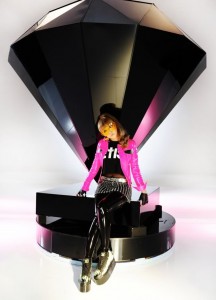 The same thing happens to K-pop.
Despite Asian countries still having lots of issues to resolve, they
began giving the world signals that they will get there. It won’t happen
overnight for sure and it is indeed a slow process. While most of these
countries have shown great improvement, it is barely enough. They
learnt how to grow; now they have to learn how to work with what they
earned. But still, they acquired a new status and the recognition their
cultures get from other regions remains a convincing proof.
The same thing happens to K-pop.
Despite Asian countries still having lots of issues to resolve, they
began giving the world signals that they will get there. It won’t happen
overnight for sure and it is indeed a slow process. While most of these
countries have shown great improvement, it is barely enough. They
learnt how to grow; now they have to learn how to work with what they
earned. But still, they acquired a new status and the recognition their
cultures get from other regions remains a convincing proof.One may argue that the affinity for Asian cultures doesn’t restrict itself to the post World War II era. Some philosophical or religious ideologies have its main source in Asia: Buddhism, hedonism, the eulogy of meditation and contemplation. Van Gogh held a high respect for the Japanese art and some of his paintings received its influence. Still, it was never a trend embraced by the masses. Maybe all these isolated cultural clashes were just a premature start.
The Asian craze didn’t just burst in early 2000s. The audiences were already prepared by that time to accept the Eastern countries: a variety of products like cars and electronics fabricated there, Chinatown/Chinese restaurants, Asian-oriented organizations or the implementation of Asian language programs in universities. Then, more overtly, cultural acts began receiving the public’s positive response. The cinematography welcomed the Bollywood movies. Then, the Japan thing started. Soon, there were anime TV channels and a whole bunch of people knew who Ayumi Hamasaki, Kumi Koda or Gackt were. But these changes happened along with the modification of the global economical balance.
And today’s fad is K-pop. It didn’t stand on its own feet. Besides the appeal it has, the importance that Asian countries started to gain played a huge role. Think about how you got into K-pop. Was it at a first glance? Or did it grow on you? And if the second option is your answer, then it means it was possible for you to experience various types of Korean entertainment before practically enjoying it. K-dramas in your country, variety shows and even the ‘Most Viewed’ section on YouTube attenuated the cultural shock. There were other people on the same bandwagon, which normalized what you would have defined as weird.
 Furthermore,
it is a vicious circle. The financial situation that allowed
K-entertainment to gain recognition is improving due to the export of
K-pop acts. The money is then invested again, resulting in a profitable
industry. Who doesn’t enjoy high-definition videos, complicated
choreography and a myriad of group’ members to choose from? Plastic
surgery, training campuses, studios and high-tech equipment, not to
mention staff members denote the allocation of a high budget.
Furthermore,
it is a vicious circle. The financial situation that allowed
K-entertainment to gain recognition is improving due to the export of
K-pop acts. The money is then invested again, resulting in a profitable
industry. Who doesn’t enjoy high-definition videos, complicated
choreography and a myriad of group’ members to choose from? Plastic
surgery, training campuses, studios and high-tech equipment, not to
mention staff members denote the allocation of a high budget.The association of K-pop with other Asian acts is not a bad thing at all. If Westerners get bored with it as predicted, its place on the Asian market will seclude also a position on the international one. Their breakthrough on the Western market wasn’t difficult just because of poor marketing strategies, but also because the already-established fans listen to them in a certain context. When the idols left the familiar background, their sound and appearance seemed misplaced and utterly different. However, there is no general remedy.
The evolution of the economy and cultures is unpredictable. The future can contradict or confirm the expectation.
Tuesday, June 5, 2012
 T-ara‘s Dani has concluded her life in the States so she can focus on her future activities in Korea as a member of T-ara.
T-ara‘s Dani has concluded her life in the States so she can focus on her future activities in Korea as a member of T-ara.On June 4th, a representative of Core Contents Media stated, “T-ara’s new member, Dani, grew up in the United States ever since she was four years old. However, she will now be residing in Korea to focus on practicing and become active as a member of T-ara.”
Dani is said to be practicing choreography and rapping for nearly 7 hours a day to improve her skills. In addition, she is said to be spending time with her parents by visiting various places in Korea to learn more about Korea’s culture before her official debut.
Meanwhile, Dani will be featuring in T-ara’s new music video which is scheduled to release in July. She will officially join T-ara’s activities in December.
Subscribe to:
Posts (Atom)




